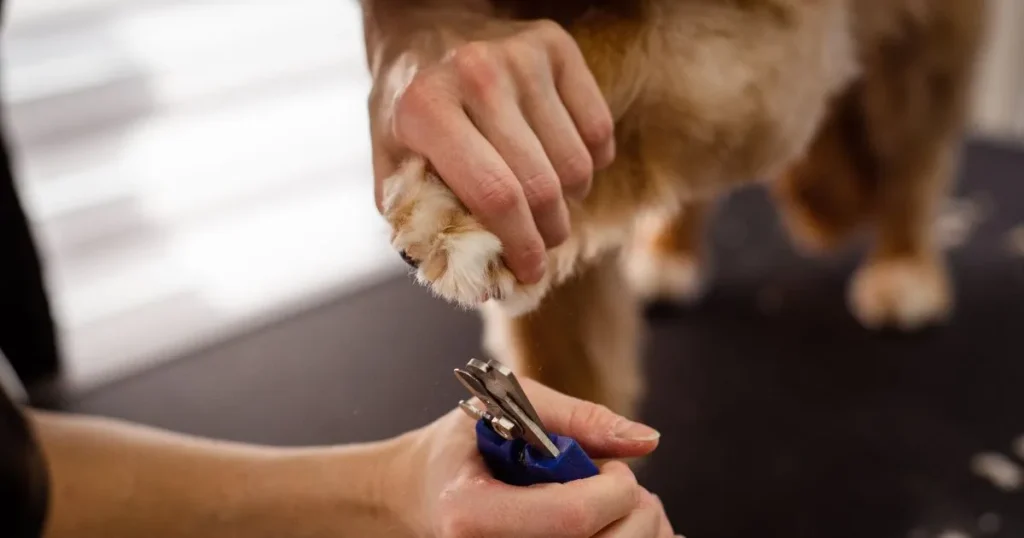Why do Dogs Scratch?
Why do dogs scratch? It’s a common question that many dog owners find themselves asking when their pets are constantly itching or biting at their skin. While occasional scratching is perfectly normal, excessive scratching can be a sign of an underlying issue, ranging from allergies to parasites or even behavioral problems. In this article, we’ll dive into the various reasons behind why dogs scratch, what it might mean for your dog’s health, and how to provide relief for your itchy companion.
Table of Contents
Common Causes of Dogs Scratching
1. Allergies: A Frequent Trigger
Allergies are one of the top reasons for persistent scratching in dogs. These include:
- Environmental allergens: Pollen, mold, or dust.
- Food sensitivities: Certain proteins or ingredients.
- Skin irritants: Harsh shampoos or cleaning agents.
Symptoms of Allergies:
- Red, inflamed skin.
- Persistent licking or chewing, especially on paws.
- Recurring ear infections.
Solution: Adjust your dog’s diet and surroundings to minimize exposure to allergens. Anti-itch shampoos and sprays may also provide immediate relief.
2. Parasites: The Hidden Agitators
Fleas, ticks, and mites can cause relentless itching in dogs.
Fleas and Ticks
Flea saliva can cause allergic reactions in dogs, while ticks irritate the skin at their bite sites.
Mites and Mange
Sarcoptic mange, caused by mites, can lead to severe itching and skin infections.
Signs of Parasites:
- Visible fleas or flea dirt in fur.
- Bald patches and scabs.
Solution: Regular use of flea and tick preventatives and vet-approved treatments for mites will protect your dog.

3. Anxiety and Behavioral Issues
Sometimes, scratching has a psychological cause. Stress or anxiety can lead to compulsive behaviors, including excessive scratching.
Triggers for Stress:
- Separation anxiety.
- Boredom or lack of stimulation.
- Changes in routine or environment.
Solution: Keep your dog mentally engaged with toys and exercise. If the behavior persists, consult a vet or a trainer for tailored advice.
4. Health and Nutritional Problems
Hormonal Disorders
Conditions like hypothyroidism or Cushing’s disease may lead to skin problems and persistent itching.
Dietary Deficiencies
A lack of essential nutrients can harm your dog’s skin and coat.
Solution: A balanced, nutrient-rich diet is crucial for healthy skin and overall well-being. Including omega-3 fatty acids in your dog’s diet may boost skin health and help reduce irritation.
5. Why Prompt Action Matters
Excessive scratching might seem like a minor issue at first, but if left unaddressed, it can lead to more severe complications. Persistent itching can break the skin barrier, making your dog prone to bacterial or fungal infections. Chronic discomfort may also impact your pet’s mood, appetite, and energy levels. By identifying the root cause early and taking the necessary steps, you not only provide immediate relief but also prevent long-term health issues. Remember, a comfortable dog is a happy dog, and proactive care is always the best medicine.
How to Stop Excessive Scratching
Home Remedies
- Oatmeal Baths: Relieves irritation naturally.
- Apple Cider Vinegar (Diluted): Reduces itchiness and has antibacterial properties.
When to Visit the Vet
Seek professional help if scratching leads to open sores, swelling, or hair loss.
Frequently Asked Questions (FAQs)
Q1: What if my dog scratches but has no fleas?
A: It might be due to allergies, dry skin, or anxiety.
Q2: Can diet impact my dog’s scratching?
A: Absolutely. A nutrient-rich diet can improve skin health and reduce itching.
Q3: How do omega-3 fatty acids help dogs?
A: They promote healthy skin and reduce inflammation, which can alleviate itching.
Conclusion: Relief for Your Itchy Pup
Understanding why dogs scratch is key to finding the right solution. Whether the cause is physical or psychological, addressing it promptly ensures your dog stays comfortable and happy. If you’ve tried remedies and the issue persists, consult your vet for a tailored approach.
For more in-depth information on dog health and scratching, be sure to explore resources like PetMD and the American Kennel Club.








